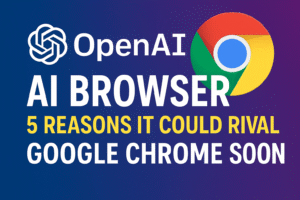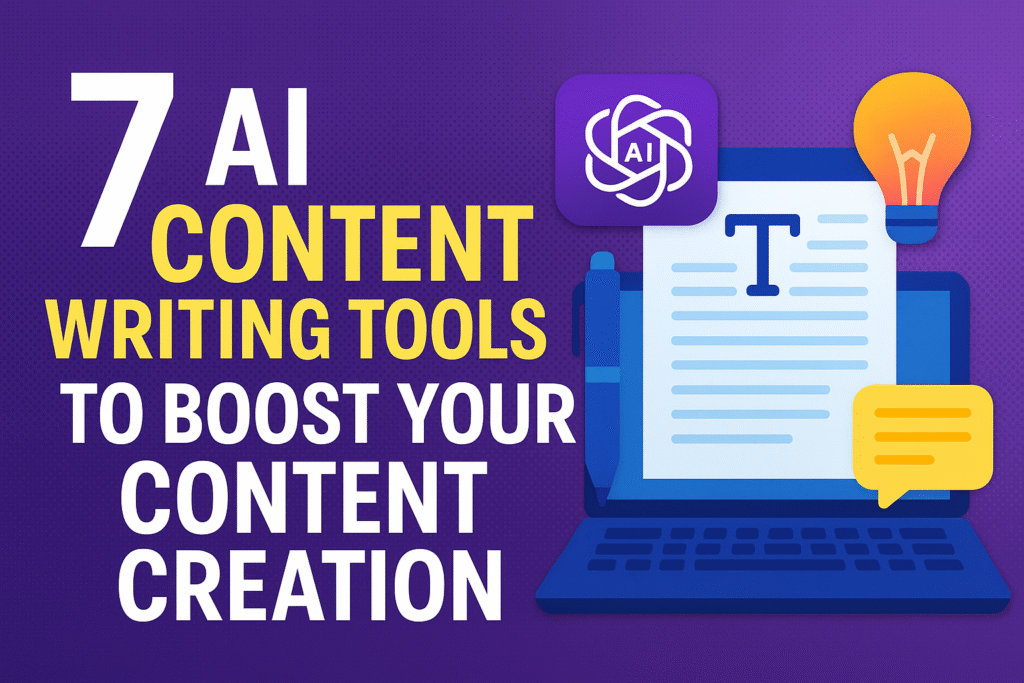OpenAI AI Browser: A New Revolution to Rival Google Chrome

OpenAI is on the verge of launching its own AI-powered web browser, a bold move that could disrupt the dominance of Google Chrome. With artificial intelligence integrated into the browsing experience, this new browser aims to transform how users interact with the web. From personalized browsing suggestions to automated tasks, OpenAI’s AI browser could offer smarter, more efficient web experiences for millions of users.
What is the OpenAI AI Browser?
The OpenAI AI browser is designed to be more than just a browsing tool; it’s a fully integrated AI assistant. Unlike traditional browsers, this AI-powered browser leverages OpenAI’s cutting-edge technologies, such as ChatGPT, to deliver an advanced, personalized browsing experience. By integrating AI into the browser itself, OpenAI aims to provide intelligent suggestions, automate tasks, and enhance user productivity in ways that other browsers like Google Chrome do not.
Core Features of the OpenAI AI Browser
- AI-Powered Chat Integration
One of the key features of the OpenAI AI browser is the deep integration with ChatGPT. The AI assistant will offer real-time, natural language interactions. Users can ask questions, search for information, or get recommendations directly from the browser interface. Whether you’re researching a topic or planning your day, ChatGPT will make it faster and more efficient. - Operator AI Agent
The AI browser comes with an Operator AI agent designed to manage repetitive tasks like filling out forms, setting reminders, and scheduling appointments. This feature will learn from the user’s behavior and become more efficient over time, offering increasingly accurate and helpful suggestions. - Smart Recommendations
As users browse, the OpenAI AI browser will analyze their preferences and habits to suggest relevant content, products, or services. This ability to personalize the browsing experience is a game-changer, making the AI browser not just a tool, but an intelligent assistant that adapts to individual needs. - Efficiency and Productivity
The AI browser is built to streamline online activities, allowing users to save time. For instance, instead of manually searching for information, users can simply ask the browser to fetch it for them. Additionally, the AI will automate tasks like managing emails, posting on social media, and summarizing articles, all within the browser.
Building on Chromium: Why OpenAI Chose Google’s Foundation
Although OpenAI’s AI browser is set to offer groundbreaking features, it will be built on Chromium, the same open-source engine that powers Google Chrome. This ensures compatibility with all existing web standards, ensuring a smooth user experience. Users will still have access to their favorite browser extensions and web apps, but with the added benefit of AI integration.
By utilizing Chromium, OpenAI is able to focus on enhancing the user experience with AI features while maintaining the reliability and familiarity that comes with the Chromium framework.
The Competitive Edge: How OpenAI Could Rival Google Chrome
Google Chrome has long been the dominant web browser, but the introduction of OpenAI’s AI-powered browser could change that dynamic. While Chrome continues to rely heavily on ad-driven revenue from user data, OpenAI’s browser promises to offer a smarter, more personalized browsing experience without relying on intrusive ads.
OpenAI’s approach to user data could set a new standard for privacy-conscious browsing. By offering a more transparent and ethical alternative to Chrome, OpenAI could potentially attract millions of users who are increasingly concerned about data privacy.
The Challenges and Potential Drawbacks
As exciting as the OpenAI AI browser may be, it will face its share of challenges. One significant concern will be privacy. While OpenAI has a reputation for building trustworthy AI, users may still hesitate to trust a browser with their data. The AI will need to ensure transparent data policies and provide robust safeguards to protect user information.
Moreover, users accustomed to Google Chrome’s ecosystem might face a learning curve as they transition to the new AI-powered browser. Adapting to a new browser, even one as innovative as OpenAI’s, can be a slow process. OpenAI will need to ensure a smooth migration path for users who want to try the AI browser without losing the features they love from Chrome.
Impact on the Web Browsing Landscape
OpenAI’s AI-powered browser could spark a significant shift in how we interact with the web. As AI continues to permeate various aspects of our digital lives, the introduction of a browser that learns from users and automates tasks could revolutionize the browsing experience. It could also influence other tech companies to integrate AI into their own products, fostering a new era of intelligent web tools.
For businesses, the new AI browser could open up new avenues for customer engagement, marketing, and user retention. By understanding user preferences in real-time, companies can tailor their digital content and ads more effectively.
Will OpenAI’s AI Browser Overcome Google Chrome’s Dominance?
Although Google Chrome is currently the most widely used browser, the rise of AI technologies is creating new opportunities for innovation in the digital space. OpenAI’s AI browser offers a compelling case for why the future of browsing might not lie solely in the hands of Google. With its intelligent features and user-first approach, OpenAI has the potential to shift the market in its favor.
However, whether the new browser can gain widespread adoption and challenge Chrome’s market share remains to be seen. OpenAI’s AI browser will need to prove that it can offer a superior browsing experience that resonates with users across different platforms and industries.
ALSO SEE: AI and Its Impact on Everyday Life: Revolutionizing How We Live and Work
Conclusion: The Future of AI Browsing
The introduction of OpenAI’s AI-powered browser marks a significant milestone in the evolution of web browsing. With its blend of AI, automation, and personalized features, the browser promises to redefine how we interact with the internet. If successful, it could offer an alternative to Google Chrome’s dominance and set the stage for a new era of intelligent web tools.
As AI continues to shape the future of technology, OpenAI’s AI browser represents a glimpse into the future of browsing: smarter, faster, and more personalized. Will it be the tool to replace Google Chrome? Only time will tell, but it certainly has the potential to change the game.
References:

